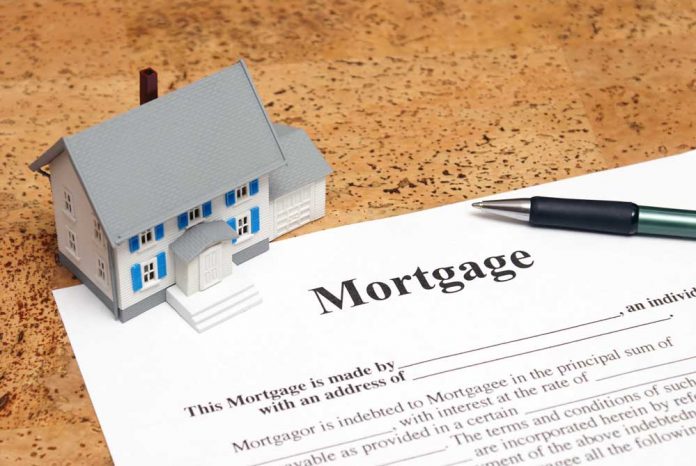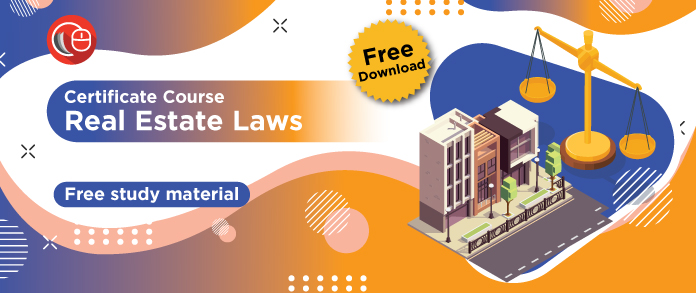This article is written by Adv. Binal G. Shah, pursuing a Certificate Course in Real Estate Laws from LawSikho.
Table of Contents
What do you mean by mortgaged property
A mortgaged property is an immovable property given as a security against the money received by way of loan, an existing or future debt or a pecuniary liability.
In simple terms, when an individual asks for money and the one who is willing to give money to the individual seeks guarantee for repayment of the money that is advanced to the individual. To guarantee the repayment, the individual gives either original documents or conditional possession of the immovable property owned by him as a security to the lender till the time the individual is able to repay the principal amount i.e. loan taken together with the interest to the lender. The best example of this is housing loans. When a bank grants housing loan to an individual, the bank retains the original documents of the house towards which the housing loan is availed, as a security. In the event an individual defaults in repayment of the loan, the bank can auction the secured house and recover the loan amount.
Transfer of Property Act, 1882
The Chapter IV – section 58 to section 104 deals with the mortgage of the immovable property and charges. Before going ahead in detail to know about the mortgaged property, it is important to know the terms mentioned hereinbelow that shall be frequently used in this article:
Mortgage is the transfer of interest in specific immovable property for securing the payment of money;
Mortgagor is the one who mortgages his property i.e. borrower/transferor;
Mortgagee is the one who lends money i.e. lender/transferee;
Mortgage-Money is the principal amount plus interest payable to the mortgagee;
Mortgage Deed is an instrument by which the transfer is effected.
According to the Transfer of Property Act, 1882, there are six types of mortgages namely:
- Simple mortgage
According to section 58(b), in a simple mortgage, the mortgagor assures mortgagee that he shall repay the loan amount and in the event of default, he shall bind himself personally to sell the mortgaged property and thereby repay the loan amount. In simple mortgage, the possession of the property and its title documents remain with the mortgagor only. The transaction is called a simple mortgage and the mortgagee is called a simple mortgagee.
- Mortgage by conditional sale
As per section 58(c), for a mortgage to be mortgaged by conditional sale it is imperative that the conditions shall be specifically mentioned in the document which effect or purports to effect sale. Here, it is mandatory for the mortgagor to sell the property to the mortgagee with the conditions mentioned hereinbelow:
- Upon default of payment by the mortgagor on a particular date, as mentioned in the document, the sale of the property shall become absolute; or
- Once the mortgagor repays the loan amount together with the interest i.e. mortgage-money, the mortgagee/seller shall transfer the property back to the mortgagor/buyer; or
- On receipt of mortgage-money, the sale of immovable property shall become void;
The transaction is called a mortgage by conditional sale and the mortgagee is referred as mortgagee by conditional sale.
- Usufructuary mortgage
According to section 58(d), when a mortgagor delivers possession of the mortgaged property to the mortgagee until the mortgage-money is paid and allows mortgagee to appropriate rents and profits accrued from the property during the term of the possession in lieu of the interest or principal amount as per the agreed terms and conditions, the transaction is called usufructuary mortgage and the mortgagee is referred to as an usufructuary mortgage.
- English mortgage
As per section 58(e), in English mortgage, the mortgagor binds himself to repay the mortgage-money on a particular date and transfers the mortgaged property to the mortgagee absolutely with a proviso that once the mortgage-money is paid to the mortgagee, the mortgagee shall re-transfer the mortgaged property to the mortgagor.
- Mortgage by deposit of title deeds
According to section 58(f), when a mortgagor delivers/deposits original title documents of the immovable property situate at Calcutta, Madras and Bombay and any other town as notified by the concerned State Government in the Official Gazette, with the intention to create security thereon is called a mortgage by deposit of title deeds.
- Anomalous mortgage
As per section 58(g), a mortgage which is not as per section 58(b) to 58 (f) is an anomalous mortgage. The word anomalous itself explains the irregular mortgage.
How to sell mortgaged property
- Sale of mortgage property by mortgagee
In order to sell the mortgaged property in the event there is default in payment of mortgaged-money, the mortgagee either needs to obtain order from Court or can be done without intervention of court.
- According to section 69 of the Transfer of Property Act, 1882, upon default in making payment of the mortgaged-money, the mortgagee can sell the mortgaged property without intervention of the court under following conditions:
- The mortgage must be an English mortgage and neither of the mortgagor must be Hindu, Mohammad and/or Buddhist and/or a member of any other sect, caste, tribe as specified in the official gazette of State government;
- The mortgagee must be the Government and power of sale without interference of Court is expressly conferred on the mortgagee by the Mortgage Deed;
- The mortgaged property must be situated at Calcutta, Madras and/or Bombay and/or any other town as notified by the concerned State Government in the Official Gazette and the power of sale without interference of Court be expressly conferred on the mortgagee by the Mortgage Deed.
It is important to note that the above mentioned sale can be effective only when mortgagee serves notice to the mortgagor asking him to clear the principal amount and the mortgagor defaults in payment consecutively for three months or payment of some interest minimum to Rupees Five Hundred is in arrear and unpaid for three months after becoming due.
- Sale of a mortgaged property by obtaining court order
Under Rule 4 Order XXXIV of Code of Civil Procedure, 1908, the mortgagee shall apply for Preliminary Decree in Suit for Sale in the Civil Court, wherein the mortgagor shall be summoned to pay mortgaged money together with the other expenses as determined by the Court on or before a date fixed by the Court.
In the event, the Mortgagor fails to pay the said amount, the mortgagee shall be entitled to obtain/apply for final decree under Rule 5 Order XXXIV of Code of Civil Procedure, 1908, wherein the mortgagor shall be debarred from his rights to redeem the mortgaged property and the mortgagee shall be directed to sale the mortgaged property. The sale proceeds shall be adjusted with the cost, expenses, charges and interest, and the balance, if any, shall be paid to the mortgagor.
- Sale of mortgaged property by mortgagor
- Selling of mortgaged property under housing loan
There are times when an individual who has availed housing loan is desirous of selling his property. In this case, the buyer needs to conduct due diligence on the mortgaged property to verify the facts shared by the seller. Here I will tell you in brief what one needs to do if he wants to buy a property which is already mortgaged under Housing Loan.
- In such cases where an individual has availed housing loan, the original documents are lying with the bank or financial institution;
- It is imperative for the prospective purchaser to obtain the letter from the bank providing details of the outstanding loan amount;
- The prospective purchaser can also seek inspection of original documents from the bank in the presence of the prospective seller;
- Once the terms and conditions are negotiated and finalized, the prospective seller needs to obtain no objection certificate from the bank stating that the bank has no objection in the sale of the mortgaged property and the housing loan shall be transferred in the name of the prospective buyer once the transaction is concluded and the instrument i.e. Agreement for Sale/Sale Deed is registered at the office of the Registrar.
- The instrument, agreement for sale/sale deed, should be drafted recording all the terms and conditions and must expressly mention the housing loan.
- Upon registration of the sale deed, the housing loan ought to be transferred in the name of the new purchaser and thereby concluding the sale of the mortgaged property.
- Selling of mortgaged property by developer/builder
Currently, it is a practice in the real estate sector, wherein the builder/developer mortgages the free sale component i.e. the flats/apartments that he shall construct to sell to the consumers, with the banks or financial institutions to avail the loan in order to meet the cost of construction. So here, before construction only, the flats/apartments are mortgaged.
Now, if someone is willing to purchase a flat in the under construction project, wherein the builder/developer has already mortgaged the flat/apartment that the prospective purchaser is willing to buy, then in that event, the builder/developer shall have to first obtain No Objection Certificate (NOC) from the respective bank/financial institution in order to proceed with the sale of the flat/apartment.
Upon receipt of the said NOC, the builder/developer might enter into Agreement for Sale as per the terms and conditions negotiated by and between the parties. The payment that shall be made for purchase of the said flat shall be diverted to the bank/financial institution and thereby the property shall be free from encumbrances.
Conclusion
In this article, I have tried to explain the concept of mortgage as simply as possible. However, there are still a lot more things to know about mortgages and the properties. I would suggest you to take legal advice/help whenever you want to buy a property. The core reason for this suggestion is that this industry is huge and has a lot of legalities involved. Seeking help from a professional will always make your journey of buying and selling property easier.
Disclaimer: The content of this article is intended to provide a general guide to the subject matter. Specialist professional advice should be sought about your specific circumstances. The views expressed in this article are solely of the author of this article.
Students of Lawsikho courses regularly produce writing assignments and work on practical exercises as a part of their coursework and develop themselves in real-life practical skill.
LawSikho has created a telegram group for exchanging legal knowledge, referrals and various opportunities. You can click on this link and join:
 Serato DJ Crack 2025Serato DJ PRO Crack
Serato DJ Crack 2025Serato DJ PRO Crack











 Allow notifications
Allow notifications


